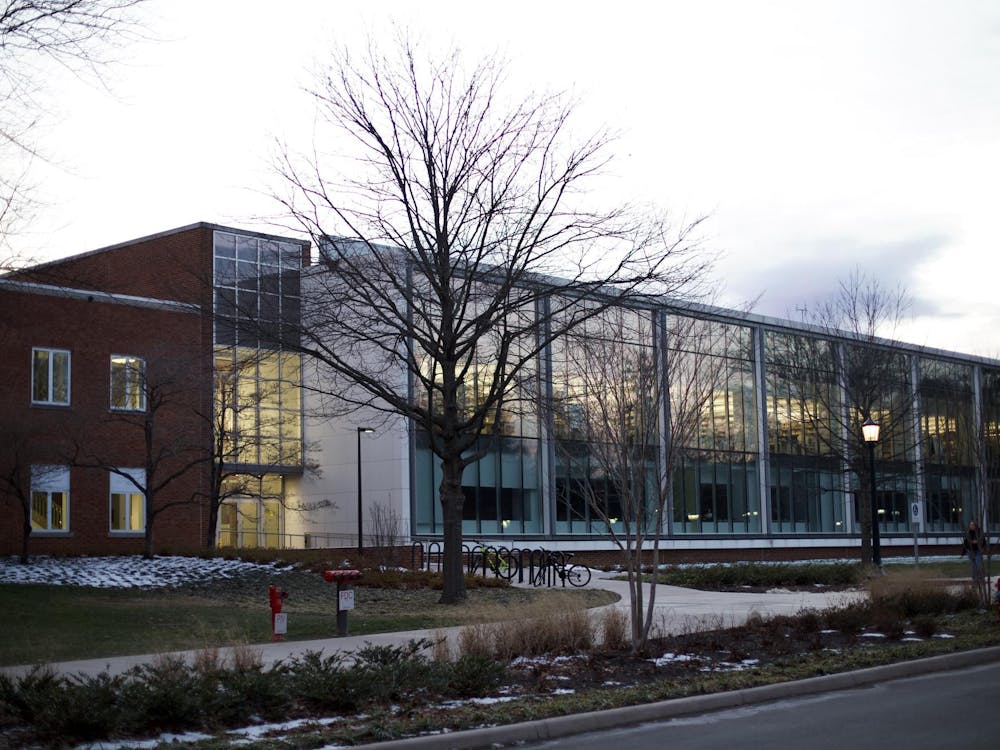CONCORD, N.H.-Concord, New Hampshire is a funky place, existing simultaneously as a small, rural town - like the ones shown in picture books of New England - and as an ever-changing, newly affluent pop culture city of the future. All along Concord's Main Street, elements of both worlds - weather-worn marble buildings with 200-year old cornerstones; blindly white, fresh-painted walls in coffee bars - co-mingle in a kind of retro-chic heterogeneity. It is a kind of crossroads where the old meets the new, the conservative faces the outlandish (George W. Bush's headquarters is next to a lingerie store), the standard meets the unstable, the tried meets the trying.
Similarly, the New Hampshire primary itself is a kind of cross-cultural blending, an event which mixes old school stump-speaking with new age media hype, local electioneering with national spin-doctoring.
For weeks now, the candidates - George W. Bush and John McCain on the Republican side and Bill Bradley and Al Gore on the Democratic - have been trekking back and forth across the state speaking to groups of all sizes, from large rallies in civic centers to small speeches held in churches and high school gyms. The number of events was staggering - both Bradley and McCain have held more than 100 town meetings apiece - and the focus has been overwhelmingly local. With only a little over one million citizens - most of whom are white, middle-class voters from rural areas - the campaign in New Hampshire feels more like a mayoral race than a nationally focused campaign for president. As one New Hampshire resident remarked, "I've shaken hands with all the candidates, and I haven't had to drive more than 20 miles from home to do so."
On both sides of the partisan divide, candidates have focused on issues popular with middle class constituents - education, gun control, campaign finance reform, health care. They have shied away from other issues, like abortion rights, foreign policy and social security and welfare reforms, for fear of alienating or losing the hearts and minds of New Hampshire voters.
So far, the candidates have stayed so close to the center of the political spectrum that the race has been less about the candidates' individual positions and more about their personalities and professional histories. "I voted for John McCain solely because he was a commander in Vietnam," one man remarked as he left the polls.
The candidates, particularly outsiders McCain and Bradley, have given extensive lip service to "restoring trust in democracy" (Bradley) and "people taking the government back" (McCain), themes which resonate well with independently-minded voters disillusioned with Washington's politics as usual.
While these causes and catch phrases may speak well to the people of New Hampshire, they do not necessarily reflect the attitudes and opinions of the country as a whole. Therein lies the danger of this primary serving the dual role of state selection and national showcase. The winners in New Hampshire are guaranteed greater press coverage and media hype going into the upcoming Delaware and South Carolina primaries, which undoubtedly will translate into more votes. In other words, the candidate found most appealing by voters in a state that is more or less demographically homogeneous will automatically get a bump up in other states that are not. Issues of interest to New York urbanites, for example, may not be the same as those that interest New Hampshire farmers. Yet those New Hampshire farmers have a large impact on how the race plays out in New York.
This primary also could spell certain doom for candidates who reflect the interests of the nation as a whole, though not necessarily the interests of New Hampshire.
While the returns in New Hampshire are important in their own right, they represent only one-fiftieth of the overall nominating vote, and do not serve as a determinant or an index of the way citizens will vote in other states.
For a candidate to win the nomination and ultimately the presidency, he will have to attract supporters from many demographic sectors and will have to articulate a vision that appeals to the greatest number among the American electorate. The results from one single state can't predict which candidate is best equipped to do that.
(Rob Walker's column normally appears Thursdays in The Cavalier Daily.)





